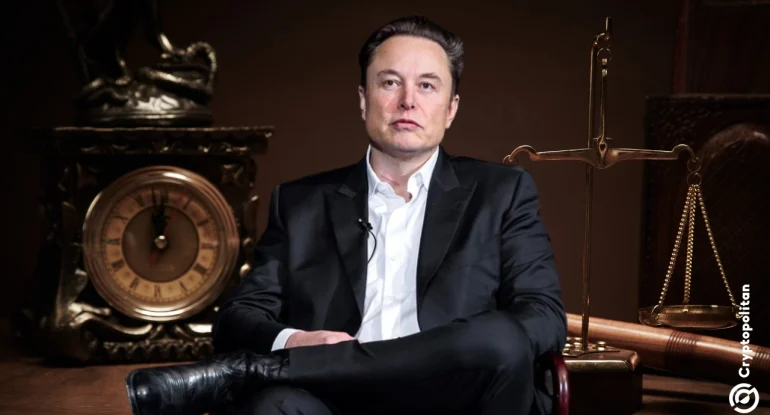Meme Coins: Southeast Asia’s DOGE-Inspired Crypto Wave

For many years, the bureaucracies in Southeast Asia have been seen as these grand, unchangeable institutions—almost like revered shrines. But things might be shifting. Think Elon Musk and his approach to shaking things up. It seems his bold moves, a bit like a ‘DOGE’ meme in the world of governance, are inspiring some changes. Indonesia and Vietnam, for example, are now looking to seriously cut government costs. And just as we’ve seen with Musk’s companies in America, these changes could unfortunately mean some job losses.
In Indonesia, President Prabowo Subianto has announced some pretty significant cuts—around $19 billion to be exact. That’s a hefty 8.5% slice of the national budget this year, showing they’re serious about tightening the belt.
Vietnam, on the other hand, appears to be aiming for an even bigger overhaul. To Lam, a key leader in the Communist Party, has already taken steps to streamline government. He’s reduced the number of ministries and agencies from 30 down to 22 and even halved the party commissions and parliamentary groups. That’s some serious streamlining.
And it doesn’t stop there. Malaysia’s government recently made headlines by letting go of 30,000 contract workers who didn’t have high school diplomas. Cambodia looks like it could be next in line for these kinds of cuts, especially since its government bureaucracy expanded after a leadership change in 2023.
“No more hiding places for slackers in office” – To Lam
The tough talk from some Southeast Asian leaders about these job cuts, mostly impacting lower-paid workers, can sound a bit cold, echoing some of Musk’s own sometimes blunt language. Lam’s message is clear: he doesn’t want the government to be a “safe haven for weak officials.”
He put it quite dramatically, saying, “If we want a healthy system, we sometimes need to take tough medicine and bear some pain to cut out the bad parts.” And the changes are hitting various sectors hard. People in transportation are being shown the door, the Ministry of Labor is being dismantled, and state-run media outlets are either merging or disappearing altogether.
At the local level, they’re even merging party and government offices to better focus on Asia’s economic future. Vietnam aims to cut 20% of all government jobs by 2030. They’re really shaking things up administratively too, planning to eliminate half of the provinces and 70% of the smaller commune-level governments across the country.
The idea is that fewer layers of government and fewer officials will lead to a more efficient system. The government is even calling this a “revolution,” fitting it into Vietnam’s narrative of becoming a rising national power.
However, not every part of the government is feeling the pinch. To Lam, who used to be the country’s top police official, has ensured the Ministry of Defense remains untouched. It seems he’s making sure his allies maintain their influence within the communist party, particularly with the National Congress coming up in January.
Savings to Fund Free School Meals
In Indonesia, the cutbacks are being rolled out across the board. Public works is facing a massive 73% reduction, and other departments are seeing cuts of 30% to 50%. Tens of thousands of contract workers are losing their jobs with the government, and even regular public servants are reportedly being told to wrap up their workday by 4 p.m.
It’s worth pointing out though, that these spending cuts are hitting most ministries, but not those connected to key allies. Prabowo, who used to head up the Ministry of Defence, has notably left that department untouched.
Prabowo explains that the money saved from these cuts will be used to fund his big promise: a $28 billion-a-year free school meals program. However, this plan is raising some eyebrows. Critics are questioning whether it makes sense to cut social spending that might help families put food on the table at home, only to offer kids a potentially slightly better lunch at school.
Some observers believe this is really about politics and power dynamics. A smaller government could mean fewer power centers and tougher competition for those well-paying government jobs. This ultimately concentrates more power at the very top.
Indeed, Prabowo has stated that two-thirds of the savings will go into a newly established national wealth fund. Unlike Indonesia’s previous fund, this new one gives direct control to the president.
External Pressures: USAID Cuts and Tariffs
Adding to the pressure on state budgets, the United States suddenly stopped providing aid, and the threat of new tariffs looms. France and Japan aren’t in a position to fully compensate for these changes. With global free trade on shaky ground, every Southeast Asian nation is focused on moving up the economic ladder as quickly as possible.
To achieve this economic growth, governments realistically only have three levers to pull: raise taxes, borrow more, or cut spending. While taking on more state debt isn’t impossible, most governments prefer to avoid it if they can. And raising taxes? That’s complicated when tax collection systems aren’t super efficient in the first place.
In 2022, tax revenue averaged around 14.3% of GDP globally. Thailand was the only Southeast Asian country that exceeded that average. Indonesia only managed to collect 11%. Improving tax efficiency could boost revenue in the long run, but that takes time. In the short term, cutting costs looks like the most straightforward option.
Cryptopolitan Academy: Want to grow your money in 2025? Learn how to do it with DeFi in our upcoming webclass. Save Your Spot











